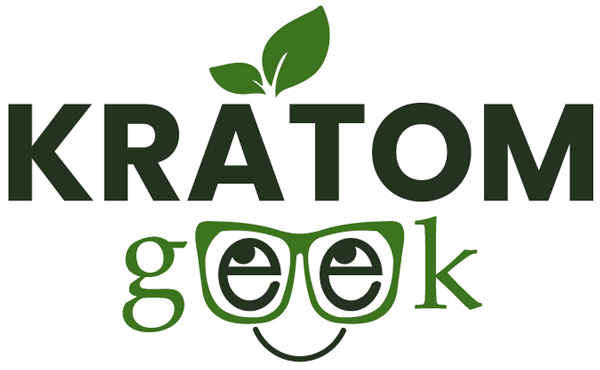Kratom Legality in Thailand Relieves the Criminal Justice System
Since 1979, anyone possessing kratom in Thailand could be charged with violating the country’s drug laws. Plus, the sentencing carried hefty penalties for those apprehended that held any significant weight of the herbal commodity. Anyone with more than 10 kilograms of kratom could get sentenced to up to two years in prison. Besides the prison penalty, the fine for that amount of kratom could reach over $6000 US dollars.
But in the past couple of years, the Thai government has started shifting its outlook on its outdated drug policy. Earlier this year, Kratom Geek educated its readers about the Thai government’s plan to remove kratom from its narcotic list of illegal substances. And recently, the political movement to legalize kratom came to fruition. On August 24th, 2021, the Thai government decriminalized the sale and possession of kratom in the country.
Now that kratom is legal in Thailand, it will allow some relief to an overburdened justice system. The Office of Narcotics Control Board estimates that over 8,000 people will have kratom charges dropped or cleared because of the new law.
And the Ministry of Justice backs kratom legalization, which would allow them to drop thousands of cases related to the sale or possession of illegal kratom. The legal maneuver would also let the justice system immediately release 121 convicted inmates for crimes involving kratom.
The Justice Minister of Thailand Wants Kratom Industry Reform
The amendment to remove kratom from the scheduled list of narcotics helped to reduce an overpopulated prison system. But Justice Minister Somsak Thepsuthin also wants to see additional reforms providing a pathway for citizens seeking to profit from kratom legality.
Currently, kratom growers can sell fresh leaves in the country without fear of running afoul of the law, but the ability to add kratom to an herbal product is governed by the Herbal Products Act. And Thai kratom vendors cannot put kratom in drinks or food for commercial use because it remains prohibited by the Food Act. To do either, one would need approval from the Public Health Ministry. But first, those laws need amending.
The Justice Minister continues to push government agencies, like the Public Health Ministry, to quickly amend existing regulations that place undue burdens on the Thai populace. He wants laws that permit the sale of kratom-based products, opwning new markets for the people in rural parts of the country.
To apply more pressure on Thai government officials, Justice Minister Somsak urged lawmakers to make haste with revising the local kratom laws. He went on record to say, “Laws concerning herbal products, drugs, food, and cosmetics limit the use of kratom… Should the Public Health Ministry amend the laws allowing people to use kratom in the form of herbal products, food, and cosmetics. These laws prevent village business.”
Restrictions Remain in Place for a Global Kratom Enterprise
Lawmakers already began drafting laws to ease regulations on the kratom plant. After the Thai government delisted kratom from the Narcotics Act B.E. 2522, the Thailand House of Representatives went further. On September 8th, 2021, the Thai House passed another piece of legislation that creates limitations, requirements, and restrictions on import and export licenses for the country’s new kratom industry.
Any citizen of Thailand starting an international kratom business must apply for a license from the Narcotics Control Board. Still, it might take them a minute to get approval while the regulatory circle of the government tries to figure out its next steps for a global kratom industry. However, for the time being, the gates of kratom consumption inside the country are wide open. And a thriving domestic kratom marketplace is already underway.
Nevertheless, the global kratom industry should be a focal point for legalization efforts. In the United States, the estimated kratom market is valued at more than $1 billion annually and boasts approximately 15 million customers. And those numbers grow each year as the herbal plant becomes more widely known in our domestic market.
If Thailand removed legal restrictions on kratom, it would allow them to give Indonesian a run for its money.
A Shifting Global Kratom Industry Remains in Jeopardy
Right now, Indonesia predominantly controls the entire global kratom trade. Any kratom that you have bought came from there. That’s because it’s the only country that grows kratom where its exportation is legal. However, the laws in Indonesia might change in the future. Recently, the Indonesian government hinted at a possible kratom ban, which would stop all kratom exportations altogether. And unfortunately, there aren’t any other countries that have legalized an international kratom market yet.
However, the country could cement its position as the second nation to orchestrate and profit from the global kratom trade. And should Indonesia ever make kratom illegal, the Thai industry would dominate the market. So it makes sense for Thai politicians to legalize kratom. Hopefully, the Thai government will make those necessary changes rather quickly.
Still, even if the Thai government does manage to make kratom exportation legal, the global kratom trade remains in danger. Not long ago, we became aware the FDA was trying to persuade the World Health Organization (WHO) into supporting a decision to schedule kratom as an illicit substance and ban it globally. Should that happen, kratom becomes an illegal substance in every country.
But there’s still a chance it won’t happen. The WHO meeting begins on October 11th, 2021. And it may decide kratom should remain a legal commodity. So stay tuned for more updates.
DISCLAIMER
Because Kratom is unregulated by the FDA this article is intended to provide information only, and is not to be construed as medical advice. Kratom is not intended to diagnose, treat, cure, or prevent any disease or condition.
Make sure to speak to a physician if you have questions before using Kratom.







Wow Thanks for this publish i find it hard to track down really good info out there when it comes to this topic appreciate for the information website